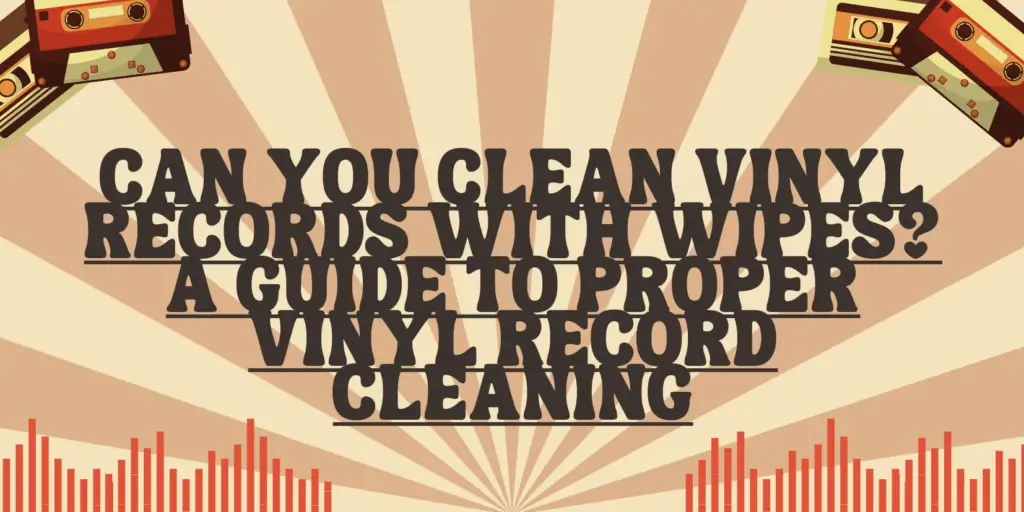Vinyl records are beloved for their warm, analog sound and tactile appeal, but they are also susceptible to dust, dirt, and fingerprints that can affect audio quality. Proper cleaning and maintenance of vinyl records are essential to preserve their integrity and ensure an optimal listening experience. In this article, we’ll address the common question: Can you clean vinyl records with wipes, and explore the dos and don’ts of vinyl record cleaning.
The Dangers of Using Regular Wipes
Using regular household wipes, such as baby wipes or cleaning wipes, to clean vinyl records is generally not recommended. These wipes are not designed for the specific needs of vinyl records and can potentially cause more harm than good. Here are some reasons why regular wipes can be problematic:
- Residue and Chemicals: Many household wipes leave behind residues or contain chemicals that may be harmful to vinyl records. Residues can accumulate in the record’s grooves and affect playback quality.
- Abrasive Materials: Some wipes may contain abrasive materials or rough textures that can scratch the delicate surface of vinyl records, leading to permanent damage.
- Static Electricity: Vinyl records are prone to static buildup, and certain wipes may generate static electricity when used, which can further attract dust and debris to the surface.
- Incomplete Cleaning: Household wipes may not effectively remove deeply embedded dirt or contaminants from the grooves, leaving behind particles that impact audio quality.
How to Properly Clean Vinyl Records
Cleaning vinyl records is an essential part of vinyl care, but it should be done with specialized equipment and solutions designed for the task. Here’s a guide to properly clean vinyl records:
- Dust Removal: Begin by gently removing surface dust and debris using a soft, anti-static brush or a carbon fiber brush. This will help prevent scratches and ensure a cleaner surface for more in-depth cleaning.
- Cleaning Solution: Invest in a dedicated vinyl record cleaning solution, which is specially formulated to remove dirt, grime, and contaminants from the grooves without harming the vinyl. Apply the solution to a clean, lint-free, microfiber cloth.
- Cleaning Process: Place the vinyl record on a soft, clean surface, and gently wipe the grooves in a circular motion using the cloth with the cleaning solution. Ensure that you don’t press too hard to avoid damaging the record.
- Rinse and Dry: After cleaning, use a separate, dry microfiber cloth to remove any remaining cleaning solution from the record’s surface. Make sure the record is completely dry before playing it.
- Storage: Store your clean records in anti-static inner sleeves and protective outer sleeves to minimize future dust and dirt accumulation.
Cleaning Machines
For serious vinyl enthusiasts, consider investing in a record cleaning machine (RCM). These machines use a combination of cleaning solutions and brushes to thoroughly clean records and remove contaminants from the grooves. While RCWs can be expensive, they provide an efficient and effective way to clean vinyl records without the risk of damage.
In Conclusion
Regular household wipes are not suitable for cleaning vinyl records due to the risk of residue, abrasiveness, and potential damage. To maintain the audio quality and lifespan of your vinyl collection, use specialized vinyl record cleaning solutions and proper cleaning tools like anti-static brushes. With the right approach, you can enjoy your vinyl records for years to come, free from the interference of dirt and dust.


